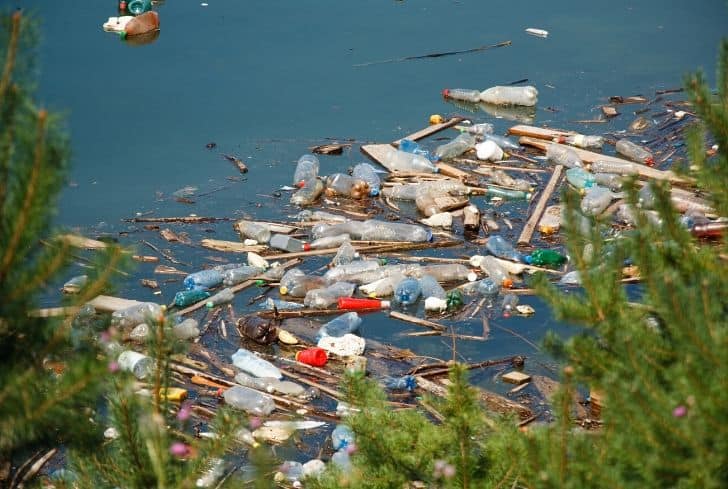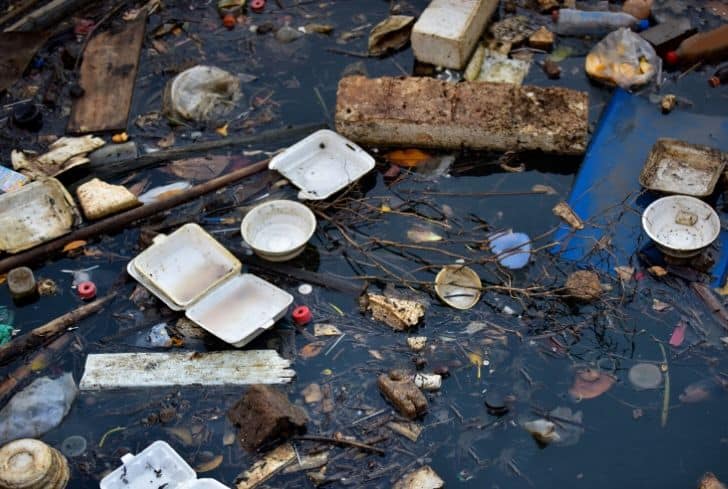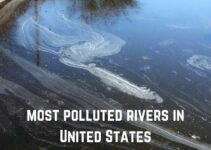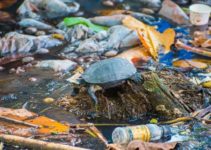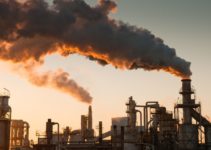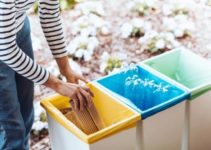Water pollution is defined as the contamination of water bodies, including lakes, rivers, oceans, and groundwater.
We all know that water pollution is a major issue, especially as we ramp up the production of potentially harmful substances. Not only does it result in contaminated water, but it also hurts the wildlife that depends on safe water for survival.
With increased global warming and climate change, our planet is already under an acute water crisis. Moreover, with the population worldwide growing at an explosive rate, water resources are also getting polluted at a higher rate.
Water pollution-related problems and issues have been growing at a rapid pace and, in turn, led to an increase in waterborne diseases.
Water and air, the two essential fluids on which all life depends, have become global garbage cans.
~ Jacques Yves Cousteau
While there is no single short step to stop water pollution, there are several things that we can do in our daily lives to reduce it.
But apparently, the best way to clean the polluted water is to stop this pollution.
Here we have compiled a list of 30+ such ways that are helpful to reduce water pollution and make it safe for animals. Organisms and ecosystems that are being harmed and becoming extinct at an alarming rate.
30+ Simple and Easy Ways to Reduce Water Pollution Now
Let’s have a look at these simple ways that you can apply to reduce water pollution going on today.
1. Use Less Plastic
It is very difficult to break down plastic after it is produced. Much of the plastic we consume ends up in the world’s water supply, where it is even harder to fish out and safely throw away.
But that’s not all — Plastic waste also spreads decay in the water supply. As such, if you can use as few plastic items as possible, you can become of help to the environment.
2. Reuse Items
Whenever you buy something that is not recyclable, such as plastic, it is better to reuse it as often as possible. This habit limits your consumption and means less of those products end up in the world’s rivers, lakes, and oceans.

3. Recyclable Options
If there are two options for a particular item, try to pick one that is easily recyclable. For example, glass bottles are much better for the environment than plastic.
4. Do Not Dispose of Oils in the Sink
While there is nothing wrong with consuming oils in your food or applying them to your body, it is a bad idea to dispose of grease, fat and used cooking oil in the sink or down the drain.
It is better to dispose of oils in the garbage or collect all your excess oil in one bottle and throw it away.
5. Cleaning Chemicals
Like oils, cleaning chemicals are hazardous when they enter the water supply. If emptying containers of household cleaning supplies, do it in the trash can, not the sink.
6. Handle Toxic Chemicals Properly
Toxic chemicals like ammonia, bleach, paint, paint thinner, and many other chemicals are becoming a severe problem.
And if dumped down the drain or the toilet, the effects only add up, and that’s why proper disposal of these is important.
There are many recycling centres and drop-off sites to dispose of these hazardous wastes safely, and recycle old paint, used motor oil, and other chemicals.
7. Shop to Stop Water Pollution
Avoid buying products that contain persistent and dangerous chemicals in the first place. Nowadays, companies are selling non-toxic cleaners and biodegradable cleaners, and pesticides.
If you spend a little extra money on those products, it automatically cuts down on water pollution.
8. Do Not Throw Away Medicines
Never throw away medicines in the water supply. Even if you do not need them, it is a bad idea to flush pills, liquid or powder medications, or drugs down the toilet or crush them in your kitchen sink disposal.
Hormones and other compounds in drugs end up causing adverse effects on fish and other aquatic wildlife, septic systems, and even contaminate drinking water. Follow the safe way for proper disposal of all types of medical waste.
9. Avoid Throwing Household Items In Toilets
Do not throw household items, such as dust cloths, tissues, dental floss, wrappers, and other paper goods, into the toilet when you are done with them.
Toilet paper is specifically made in a way that breaks down easily in water pipes, but the fiber-reinforced cleaning products pollute the system.
10. Garbage Disposal
Even though most homes have a garbage disposal system in the sink, it is better to use it rarely. This system can break down solid objects, but those items harm the water supply. It is better to throw them in the trash can when possible.

11. Dishwashing or Laundry
Only use your dishwasher or washing machine when it is close to being full. Using these machines to clean one or two dishes or a few pairs of clothes is an incredible waste of water. The less water you use during washing, the less you promote water pollution.
12. Limit the Use of Detergents and Bleaches
Using detergents and bleaches in dishwashers and washing machines is okay, but limit your use as much as possible. Do not put two cups of bleach in your washing machine when the instructions only call for half a cup.
13. Use Phosphate-Free Detergent
Phosphates present in cleaners are harmful chemicals. Research shows they lead to algae blooms and reduce the water’s oxygen, killing fish and other aquatic animals.
14. Use Environmentally Friendly Detergents
Whenever possible, get environmentally friendly detergents, soaps, and dishwashing liquids. Well, they’re sometimes more expensive, but you will be doing the environment a great service by using less harmful substances.
15. Gardening
Today a large number of people want a nice garden in their home. However, the amount of water we waste during that process is incredible.
As such, consider installing a rainwater harvesting pit in your home. It helps collect rainfall throughout the year and allows you to use that to water your grass and plants.
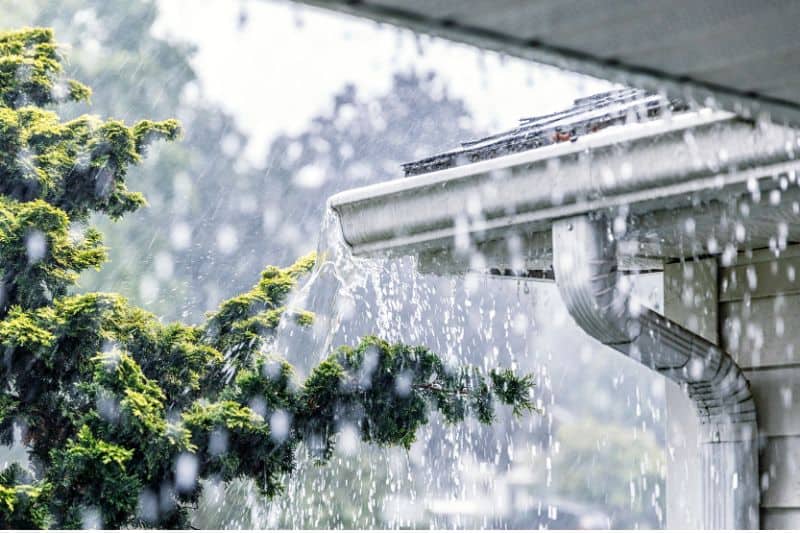
16. Avoid Pesticides
If you need to overhaul your garden, attempt to do so without using herbicides or pesticides. They are very harmful to the environment. Talk to landscaping companies in your area about environmentally-friendly replacements for these products.
17. Conserve Soil
When chemicals enter the soil, they spread through the water because the falling rain carries the topsoil. This is normal, but if the soil is exposed to excess phosphates or harmful substances, it can cause serious damage to the ground. Create banks right in front of waterways to stop the soil’s movement.
18. Do Regular Car Maintenance
If you have a car, truck, or another mechanical device, you should try to take it for maintenance after regular intervals. Most manufacturers recommend doing car servicing at least once in a year, or after every 12,000 miles, depending on what comes first.
When servicing isn’t done, oil and other fluids may start leaking from motor vehicles and end up in the local water system or run off into creeks and streams.
And by the way, leaky seals, hoses, and gaskets tend to graduate into expensive mechanical problems when neglected. Plus, replacing the worn out parts also saves you money.
It ensures the item runs efficiently and does not pollute the environment. Remember, pollution in the air does have an eventual impact on our water supply.
19. Oil Spill
The waste that accumulates when you work on your car or other mechanical devices harms the environment. Oil and transmission fluid are two examples of substances you do not want in your drains or sewers.

20. Cellar Drains or Septic Tanks
If you have a cellar drain or septic tank, ensure it is not draining directly into your sewerage system. Otherwise, it can cause serious issues and pollution in the system. Talk to your local water authority about managing a cellar drain or septic tank.
21. Just Do Not Litter!
If you visit an area with a nearby lake, river, or ocean, do not throw any litter or trash into or near the water. The same applies to disposing of litter on the beach. Keep in mind that even if you throw away a wrapper on the beach, the tide will eventually pick it up and take it into the water supply.
22. Use Water Sparingly
Turn off the tap while you are brushing your teeth. Also, keep the showers as short as possible. Do not take 20-minute showers when 10 minutes is all you need. Every bit of water you conserve is a way to help the environment.
On top of that, install a water-efficient toilet. A brick or 1/2 gal container can be used in the standard toilet tank to reduce water use per flush.
23. Plant Fauna in Lakes or Rivers
If you live in an area with a lake or river, you might want to think about planting some local fauna near the water.
Trees are also helpful. Not only do they look beautiful when they grow, but these natural items reduce erosion that washes pollution into the water and help protect the nearby water supply from pollutants. Fauna also limits the Carbon Dioxide in the water, which balances out its pH level.
24. Clean Up Litter
If you see someone littering near water, ask them to keep their items and throw them elsewhere. If you see litter on the floor, pick it up, put it in a bag, and throw it away when you get home. It is easy to think that someone else will do the job, but we can all help each other and our environment by being proactive.
25. Stop Chemical Pollution
If you notice someone throwing chemicals into the water, or hear about such an incident, talk to your local water authorities. Tell them what you saw or know and implore them to take action. If you stay quiet, you are letting the problem get worse.
26. Eat Organic Food More
Sticking to an organic diet reduces the amount of chemical pollution that ends up in the water. Organic foods tend to be produced with few synthetic chemicals.
27. Choose Food Wisely
The food we choose to eat severely impacts the quality of the environment. The chemicals used to grow food, the fuel used for the transportation of the crops, and to run farm equipment on industrial farms ultimately impact the environment.
28. Buy Sustainable Meats
While you enjoy a hamburger from time to time, it is essential to think about the impact of factory farms on our water supply. These farms produce huge amounts of waste, which ends up harming the nearby water supplies.
Whenever possible, buy sustainable meats instead of those produced at factory farms.
29. Cutting Down on Meat Consumption
Animals raised for meat take lots of water for the food and grains they need, as well as to keep them alive. Moreover, antibiotics and solid waste both end up in groundwater and rivers.
30. Stop Immersion of Ashes in the River
While it is a common practice, especially in the Hindu religion, to immerse the ashes of a deceased person in the holy water of the sacred river Ganga, it pollutes the river water and adversely affects the water quality.
Dead bodies are cremated on the river banks. Partially burnt bodies are also flung into the river to keep up with religious faiths.
31. Join Water Conservation Organizations
If you have time, you can join a water conservation organization. However, if you have a busy schedule, consider donating to a nearby organization a few times a year. Every donation can have a positive impact on those who are fighting to keep our water supply safe and healthy.
32. Volunteer and help Cleaning of Beaches, Rivers, and Locality
Sometimes you cannot afford to donate, but you can volunteer to help clean up the local rivers or beaches or help collect thrown-away chemicals from residents. Some environmental groups regularly need volunteer labour to join them.
References:
